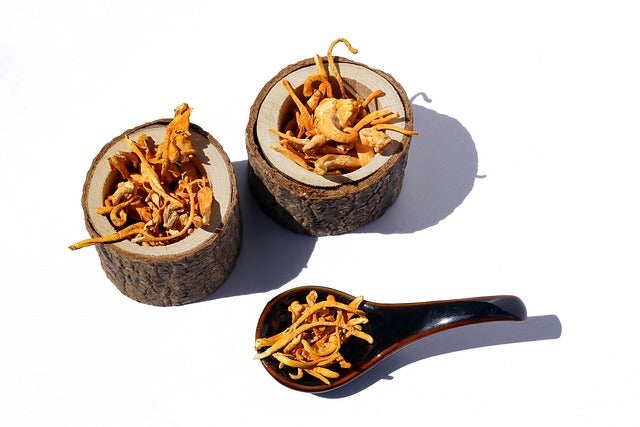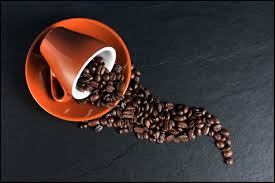
Cordyceps: Unlocking the Science Behind Its Health and Performance Benefits
tl;dr
Cordyceps, a medicinal fungus, shows promising results in improving physical performance and supporting kidney health. While cognitive benefits are still unclear, studies suggest its potential in enhancing endurance and reducing oxidative stress. More research is needed to fully unlock its health-boosting properties.
The Full Breakdown
Cordyceps is a medicinal fungus that has been used for tonics and health supplements for decades [1]. However, is there any science showing its health benefits? Well, it’s a mixed bag.
Cordyceps have been used extensively as a proposed health remedy, but the scientific community has a lot of catching up to do. For example, the evidence, to date, on cordyceps cognitive effectiveness is rather lackluster. In randomized controlled trials, cordyceps supplementation has been used to assess cognitive function across a variety of metrics, from memory, to critical thinking ability, to information processing, and several others [1]. However, studies have shown no effect of cordyceps supplementation on any of these metrics when compared against an inert substance known as a placebo [1][2].
More research is needed to make any definitive claims of effectiveness, or lack thereof, because studies use different genus of cordyceps used across studies - from sinensis to militaris. Based on the limited literature thus far, this seems to be a moot point as both genus indicate no effect [1][2]. Other possible reasons for poor effectiveness might be due to study methodology, or the participants included (young and healthy vs older and cognitively impaired, as one example). Unfortunately, we do not have that data; however, one study did use cordyceps to determine if depression symptoms could be lessened in people suffering from depression and insomnia; much the same story unfolds - no effect of supplementation [2]. So, while there may be some nuances missed due to a dearth of data, the current evidence does not point to cordyceps being a nootropic.
That said, brain centricity aside, could cordyceps be an aid in other areas of health and performance?
The evidence is slightly more compelling from a physical performance perspective. Across a multitude of studies, cordyceps supplementation enhances exercise performance [3][4][5][6]. Among these controlled studies, people consuming cordyceps sinensis or militaris experience improvements in ventilatory oxygen (VO2), which is a measure of not only exercise performance, but general physical health as VO2 is a powerful predictor of physical fitness and health [7]. Beyond the main outcome of improved physical fitness, cordyceps supplementation also led to improved ‘time to exhaustion’, which indicates a greater ability to push through exercise. So, does cordyceps now shine, unencumbered? Not so fast.
While many studies do show cordyceps associates well with improved physical performance, there are a number of studies in the same field that indicate otherwise, as well. These studies are also the gold standard randomized, double blind, placebo controlled trial by design, and yet show no effect of cordyceps on performance [8][9][10]. So, as you might be wondering - what gives?
As is often the case in science, the ‘devil’ is in the details. Doing comparisons of the studies that show cordyceps to be effective versus studies that show it to be ineffective, there are some notable differences. Studies that do not show effectiveness are either in older individuals or using an ‘acute’ dose (i.e. participants are taking it once and then being tested) - this is generally different from the studies showing effectiveness, as these studies indicated participants should consume cordyceps over several weeks, and participants tended to be young or middle age.
Additionally, one group of researchers [4] indicated that duration of supplementation and dose may make a notable difference on cordyceps effectiveness. That all said, there is still a problem with the studies showing cordyceps effectiveness: all of them included other ingredients along with cordyceps, which makes deciphering if cordyceps, or some other compound, is the real reason for these positive results. We can counter that argument by comparing the different profiles of these mixtures - they are all different, meaning the only stable ingredient is cordyceps, thereby bolstering the idea that it is cordyceps that provides these physical fitness benefits.
All this literature considered, we lean in favor of cordyceps offering a physical performance and physical fitness benefit.
Finally, cordyceps have also been tested, in randomized controlled trials, in more clinical measures, such as kidney health for people with severe and chronic kidney disease. In these studies, cordyceps has been shown to be effective at improving blood cholesterol levels, as well as reducing oxidative stress (i.e. an overabundance of damaging/reactive molecules produced by the body) [11]. Cordyceps have also been shown to improve kidney function in animal models, but this was confirmed in this human study, as well [11]. More research is needed to confirm, but what is available looks promising.
One area that was also improved in this kidney study was markers of inflammation; however, on this front, other studies share this feature [11][12][13]. Unfortunately, while the kidney study had more convincing evidence of inflammatory betterment [11], the other two controlled trials simply show changes in immune cells and immune factors [12][13]; however, exactly what that means, clinically, is unknown. So, this data should be interpreted with caution, simply indicating that cordyceps supplementation has an effect, with some evidence indicating that effect being positive, but as with most research cordyceps related… more research is needed.
Yet, overall, this leaves us with a research landscape that has its ups and downs for the cordyceps story. Some research is rather lackluster, some shows no effect, and some shows definitive improvements in health and performance from cordyceps consumption. Putting all this literature together, we have focused on what the researchers did in the studies showing cordyceps effectiveness, which is why Elevate your Coffee uses a full 3000 mg of cordyceps militaris to be consumed consistently over time.
The Reference Roundup
[1] Liu Y, Wang J, Wang W, Zhang H, Zhang X, Han C. The Chemical Constituents and Pharmacological Actions of Cordyceps sinensis. Evid Based Complement Alternat Med. 2015;2015:575063. doi:10.1155/2015/575063
[2] Zhou J, Chen X, Xiao L, Zhou J, Feng L, Wang G. Efficacy and Safety of Cordyceps militaris as an Adjuvant to Duloxetine in the Treatment of Insomnia in Patients With Depression: A 6-Week Double- Blind, Randomized, Placebo-Controlled Trial. Front Psychiatry. 2021;12:754921. Published 2021 Nov 11. doi:10.3389/fpsyt.2021.754921
[3] Chen S, Li Z, Krochmal R, Abrazado M, Kim W, Cooper CB. Effect of Cs-4 (Cordyceps sinensis) on exercise performance in healthy older subjects: a double-blind, placebo-controlled trial. J Altern Complement Med. 2010;16(5):585-590. doi:10.1089/acm.2009.0226
[4] Hirsch KR, Smith-Ryan AE, Roelofs EJ, Trexler ET, Mock MG. Cordyceps militaris Improves Tolerance to High-Intensity Exercise After Acute and Chronic Supplementation. J Diet Suppl. 2017;14(1):42-53. doi:10.1080/19390211.2016.1203386
[5] Smith AE, Fukuda DH, Kendall KL, Stout JR. The effects of a pre-workout supplement containing caffeine, creatine, and amino acids during three weeks of high-intensity exercise on aerobic and anaerobic performance. J Int Soc Sports Nutr. 2010;7:10. Published 2010 Feb 15. doi:10.1186/1550-2783-7-10
[6] Randomized double-blind placebo-controlled clinical trial and assessment of fermentation product of Cordyceps sinensis (Cs-4) in enhancing aerobic capacity and respiratory function of the healthy elderly volunteers
X Yi
[7] Strasser B, Burtscher M. Survival of the fittest: VO2max, a key predictor of longevity?. Front Biosci (Landmark Ed). 2018;23(8):1505-1516. Published 2018 Mar 1. doi:10.2741/4657
[8] Colson SN, Wyatt FB, Johnston DL, Autrey LD, FitzGerald YL, Earnest CP. Cordyceps sinensis- and Rhodiola rosea-based supplementation in male cyclists and its effect on muscle tissue oxygen saturation. J Strength Cond Res. 2005;19(2):358-363. doi:10.1519/R-15844.1
[9] Earnest CP, Morss GM, Wyatt F, et al. Effects of a commercial herbal-based formula on exercise performance in cyclists. Med Sci Sports Exerc. 2004;36(3):504-509. doi:10.1249/01.mss.0000125157.49280.af
[10] Parcell AC, Smith JM, Schulthies SS, Myrer JW, Fellingham G. Cordyceps Sinensis (CordyMax Cs-4) supplementation does not improve endurance exercise performance. Int J Sport Nutr Exerc Metab. 2004;14(2):236-242. doi:10.1123/ijsnem.14.2.236
[11] Sun T, Dong W, Jiang G, et al. Cordyceps militaris Improves Chronic Kidney Disease by Affecting TLR4/NF-κB Redox Signaling Pathway [published correction appears in Oxid Med Cell Longev. 2020 Nov 24;2020:1981636]. Oxid Med Cell Longev. 2019;2019:7850863. Published 2019 Mar 31. doi:10.1155/2019/7850863
[12] Kang HJ, Baik HW, Kim SJ, et al. Cordyceps militaris Enhances Cell-Mediated Immunity in Healthy Korean Men. J Med Food. 2015;18(10):1164-1172. doi:10.1089/jmf.2014.3350
[13] Jung SJ, Jung ES, Choi EK, Sin HS, Ha KC, Chae SW. Immunomodulatory effects of a mycelium extract of Cordyceps (Paecilomyces hepiali; CBG-CS-2): a randomized and double-blind clinical trial. BMC Complement Altern Med. 2019;19(1):77. Published 2019 Mar 29. doi:10.1186/s12906-019-2483-y


